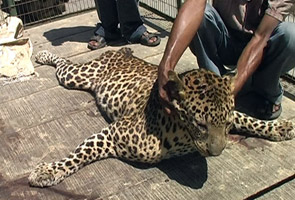 Itanagar, Aug 10 : Arunachal Pradesh has asked the central government to fence the India-Myanmar border to check the movement of separatist rebels from India's northeast who have set up base in the dense jungles of the state.
Itanagar, Aug 10 : Arunachal Pradesh has asked the central government to fence the India-Myanmar border to check the movement of separatist rebels from India's northeast who have set up base in the dense jungles of the state.'Different militant groups from northeast India are using the Arunachal Pradesh jungles as their corridor to go to Myanmar and China and vice versa,' Arunachal Home Minister Tako Dabi told IANS here.
'It is extremely difficult to deal with the trans-border movement of the separatist outfits of other northeastern states as the state has a vast geographical area (83,743 sq km area),' he said.
'The state has a long international border with Bhutan in the west (160 km), China in the north (1,080 km) and Myanmar in the east (440 km),' he said.
Four of India's northeastern states -- Arunachal Pradesh, Nagaland, Manipur and Mizoram -- share a 1,640-km-long border with Myanmar. It is manned by Assam Rifles and dense forests in most parts make the border porous and vulnerable to trans-border movement.
According to the minister, the United Liberation Front of Asom (ULFA), the National Democratic Front of Bodoland (NDFB) and the Isak-Muivah and Khaplang factions of the National Socialist Council of Nagaland (NSCN) have set up their base camps in the jungles of Arunachal Pradesh.
The separatists occasionally kidnap people and extort money, said Dabi who was here in connection with the celebration of the 103rd birth anniversary of Tripura's first chief minister Sachindra Lal Singh.
He said 37 Naga militants surrendered before the Arunachal Pradesh government earlier this month.
Regarding the demand of greater Nagaland by the Isak-Muivah faction of the NSCN, Dabi said: 'On three occasions we have strongly told the centre and passed a unanimous resolution in the state assembly unambiguously proclaiming that not an inch of land of Arunachal Pradesh would be spared for the so-called greater Nagaland.'
'There is also no area in Arunachal Pradesh where a reasonable number of Naga people reside,' he added.
The Isak-Muivah faction has been struggling for nearly six decades to create a 'Greater Nagaland' by slicing off parts of three neighbouring states to unite 1.2 million Nagas. The demand is also opposed by Assam and Manipur.
Asked about Chakma and Hajong tribal refugess from Bangladesh, the Arunachal Pradesh minister said the state government has asked the central government to resolve issues related to their demand seeking Indian citizenship.
Over 80,000 Chakma and Hajong tribal refugees have been living in Arunachal Pradesh's Lohit and Changlang districts for 46 years. These Buddhists fled from their ancestral lands in the Chittagong Hill Tracts of southeastern Bangladesh following religious persecution.
The minister stressed the need for joint efforts of all the northeastern states to remove economic backwardness. 'All the chief ministers, MPs and leaders of the eight northeastern states must jointly approach the centre to resolve the problems of the region,' Dabi added.
'There are many common problems of northeastern states relating to security, economy, health, education, unemployment and infrastructure,' he said.
**(Sujit Chakraborty can be contacted at sujit.c@ians.in)













